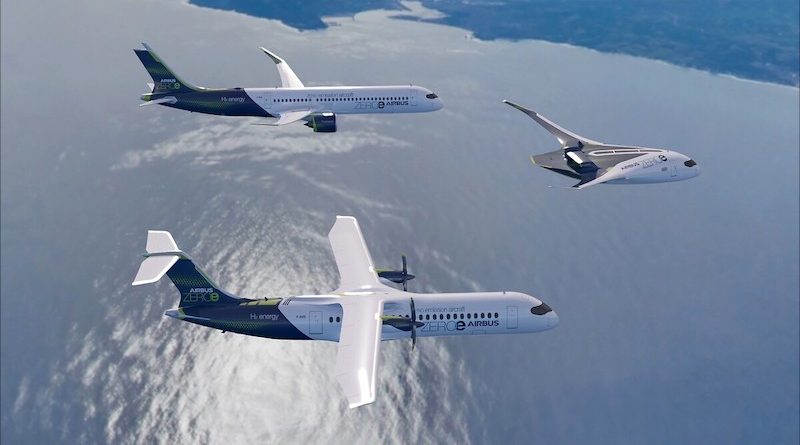
Regulatory and financial environment to support the decarbonisation of aviation
“Given the number of ruptures and changes that we are going to bring to the aviation sector, we need to on-board the regulators”
Airbus and the whole aviation industry have to face two major challenges: recover from the COVID crisis; and engage in the digital transformation and the decarbonisation of the aviation sector, which will require an unprecedented effort in innovation and investment.
The EU has a critical role to play in the recovery and to create the conditions for this major transformation. This means setting objectives and regulations to enable change, but also supporting innovation and investments in the new technologies, new energy ecosystems, and the new infrastructure that will be required to achieve these objectives.
Airbus, together with the whole European aviation industry, supports the EU Green deal objectives of carbon neutrality in 2050 and a 55 per cent reduction in CO2 by 2030.
The recently announced Destination 2050 initiative provides a clear roadmap for aviation to achieve these objectives. Airbus welcomes those initiatives and policies which encourage efficiency and innovation, including ambitious targets to scale sustainable aviation fuels.
Alongside these important policies, breakthrough innovations and in-sector emission reductions will play an important role in the decarbonisation of the sector. They will also help the European ground, maritime, and energy sectors to become world leaders in a decarbonised world.
Airbus has the ambition to develop the world’s first zero-emission commercial aircraft by 2035 through its ZEROe initiative. In parallel, Airbus advocates for a wider use of sustainable aviation fuels (SAF).
To deliver these ambitious objectives, a close cooperation and alignment is needed, both with manufacturers, airlines, airports and air navigation service providers on the industry side; and with the EU authorities and Member States to change the global ecosystem and support investments.
The road to a decarbonised aviation industry is already mapped out, but there are still significant challenges. Too much regulation and taxation in the short term could slow down the aviation sector’s – and the wider European economy’s – recovery from COVID-19. It will hamper investment in new technologies, new fuels, and the improved operations necessary to reduce air transport’s carbon emissions.
At Airbus, we strongly believe incentives to encourage investment – not taxation – are the solution.
Indeed, we can decarbonise aviation, but only if we invest sufficiently today. Specifically, we need major investment in hydrogen, SAF (including synthetic fuels), and Direct Air Carbon Capture and Sequestration (DACCS) technologies. All of these technologies will play a critical role in our journey towards net-zero aviation, and we must accelerate their development simultaneously to reach our targets within the ambitious timeline we have set out. But investment in technology development alone is not enough: we must also encourage investment in the new energy ecosystem for aviation to ensure we will have an adequate supply of these new fuels to meet the demand for climate-neutral air travel. Europe can become a hub for climate-neutral aviation – if the right political framework is set now. This is why developing a hydrogen infrastructure should be a priority for the EU and aviation will need to be fully integrated within it.
At the same time,
We require a regulatory framework that can keep pace with rapid technology development. We advocate for collaboration on and harmonisation of new hydrogen regulations, as well as clear, long-term support on emissions regulation in the form of mandates. The current SAF mandate included in the ReFuelEU initiative is a welcome addition in this context.
However, all mandates must come with added economic measures – which can help absorb inherent extra costs along the value chain – to support airlines in remaining competitive.
Ultimately, a level playing field is at the heart of a decarbonised aviation industry. A new regulatory framework endorsed by all Member States will help to lift barriers to market uptake. Alliances on Recycled and Low Carbon Fuels and Zero-Emission Aviation as well as Important Projects of Common European Interest (IPCEIs) on Hydrogen are also useful tools to avoid fragmentation at the European level. Standards endorsed at the international level (ICAO) are also needed to avoid distorting the market and putting European airlines at a significant disadvantage.




